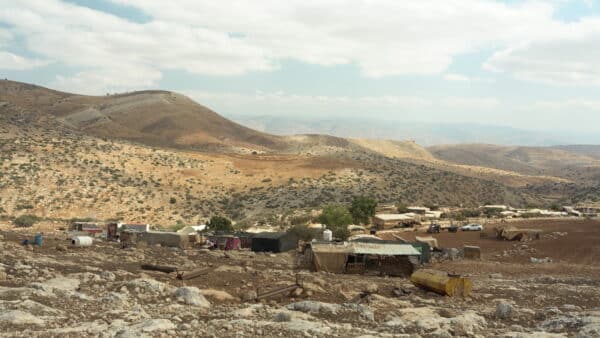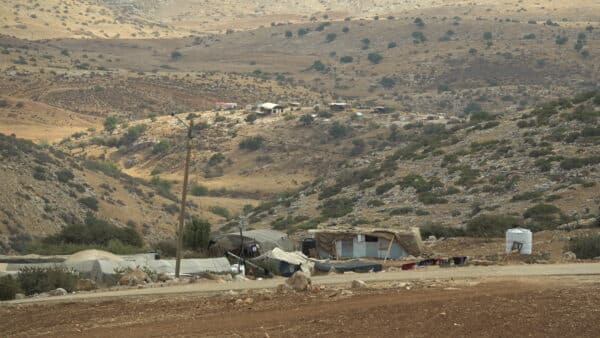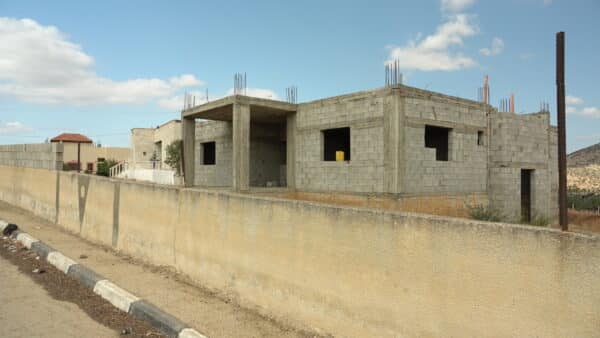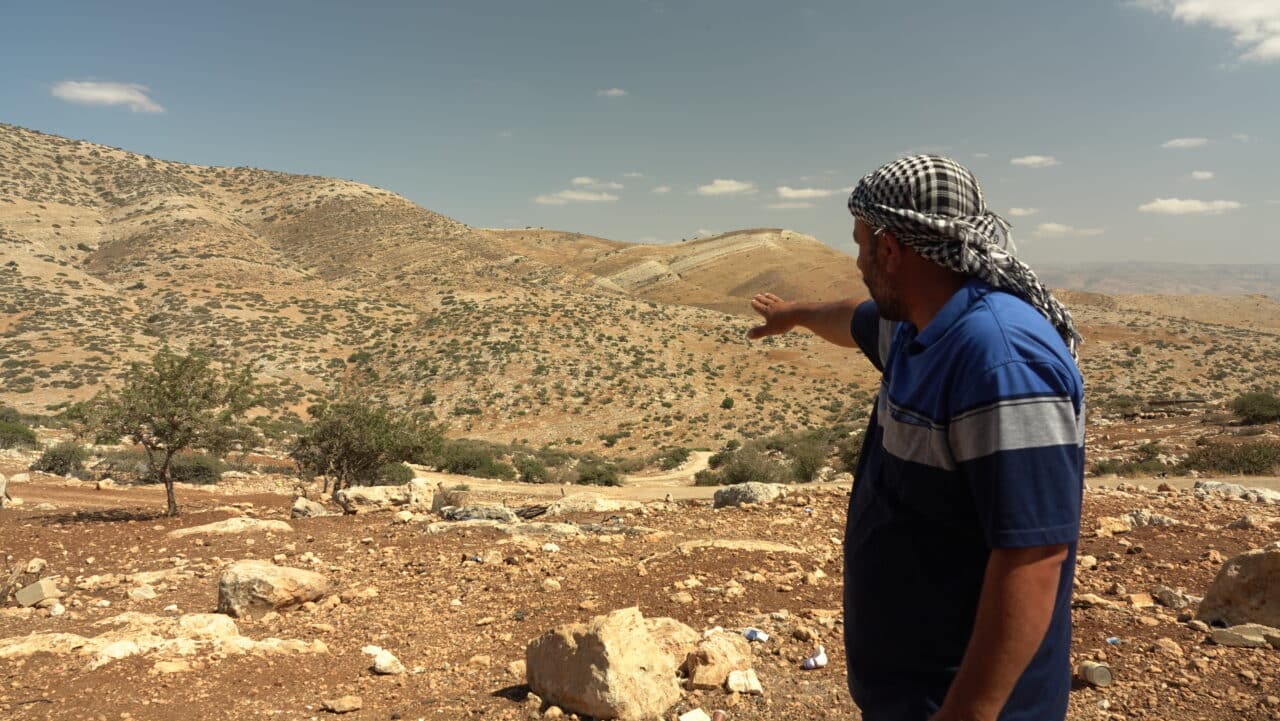Families in the area around Tubas are at the frontline of another land grab in the West Bank. This year has seen a pattern of incursions that we believe are intended to cut off the town of Tubas from the agricultural and grazing lands of the Jordan Valley, and expand the illegal Israeli settlements and developments. Many Palestinian families live in Tubas and own land east of the town. There is a checkpoint at Tayasir and the road has been closed by the army for much of this year, creating a de facto border and blocking Palestinians from accessing both their agricultural land, and towns to the east.
We interviewed a father and son in Al Aqaba who have been threatened and attacked by a new illegal settler outpost since February 2025. Initially the outpost was manned by one settler who would attack the family’s animals; killing 15 sheep and 5 dogs this year. The outpost now has 10 prefabricated houses and around 3 families living there, and it is placed in such a way that the family cannot graze their sheep on the land, or access the road eastwards. This means that the family have to buy feed for their sheep rather than the sheep getting their food from natural grazing, which is a considerable cost.

Extra costs are yet another way that the Israeli occupation and the illegal settlers make life in the Jordan Valley difficult for families in an attempt to push them off their land. Through their taxes, they must pay for electricity and street cleaning services, for example, but the electricity is often shut off and they do not receive the services they pay for. They have solar panels for electricity but cannot afford the batteries that would allow them to have electricity at night. Furthermore, the outpost installed a very bright security light that means the family are under constant surveillance and afraid to use electricity or walk around on their land and between their shelters.
In addition to the violence and surveillance, illegal settlers have stolen gold from another family in the area, and stole this family’s mobile phones while dressed as soldiers. The community’s school was demolished this year, as well as another family’s home. In September, the army gave this family an ultimatum to demolish their house and leave the land within 24 hours; they didn’t come at that deadline but the family think they will soon. The army make implied threats and tell the family that they should leave for their own safety. The army raid the family very often, sometimes nightly, and there are multiple occasions where residents in the area have been assaulted by the military and hospitalised.

This family has been displaced multiple times by the actions of the Israeli state, army and illegal settlers. The father’s family owned land in Susya, Masafer Yatta, in the south, and has the official paperwork for this, but this counted for nothing in the courts. A tactic of the courts is to say that Palestinians are Bedouin, who are nomadic and do not own land, to invalidate their claims. This father is originally Bedouin but does own land. After being displaced from Masafer Yatta, he moved to Al Maleh in the north of the Jordan Valley, and from there was displaced to Ibziq, and now to Al Aqaba. This is an example of how Palestinian families are trapped in an ongoing Nakba, unable to feel safe on their land or carry out their traditional ways of life such as shepherding. When asked what life would look like without the illegal occupation, the father said it would look like freedom for their sheep to graze, a green land, and safety and security for their families, without being under constant threat.
The family would value international solidarity presence because internationals can film incidents and act as witnesses to provide evidence. Internationals can help with documentation, especially since the army and settlers have taken the families phones, and they can also tell others about what is happening in the Jordan Valley. For instance, in the cases this year of settlers stealing gold and killing sheep, the courts said there was no evidence.


